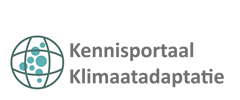Southern provinces of the Netherlands are drawing up implementation agenda in pursuit of climate resilience
In the provinces of Limburg and Noord-Brabant, municipalities, district water boards, and provincial authorities are preparing for the consequences of climate change. In order to be fully climate-proof and water-resilient by no later than 2050, they have drawn up the South Netherlands Spatial Adaptation Implementation Agenda for the six years ahead. The agenda is outlined below.
How has this implementation agenda been developed?
The governments in the provinces of Limburg and Noord-Brabant have been working on climate adaptation since 2016. To this end, they have established working regions and the South Netherlands Climate Adaptation Platform. The collective South Netherlands Climate Adaptation Implementation Programme was updated in early 2021 and comprises the following three components:
- The Adaptation Strategy: this sets out the collective approach, goals, and ambitions in terms of achieving climate resilience by 2050;
- The Elevated Sandy Soils Delta Plan Working Plan for 2022-2027: this sets out the measures and policy actions to climate-proof the water supply;
- The South Netherlands Spatial Adaptation Implementation Agenda for 2021-2027: the implementation agenda addresses the use of public space and urban areas for the implementation of measures to combat extreme waterlogging, drought, heat, and flooding. The implementation agenda covers the activities in the 13 working regions in Brabant and Limburg, and the taskings that they will collectively address at the South Netherlands level.
How are the parties collaborating?
The implementation agenda sets out how the local and regional governments are collaborating at the executive and administrative levels. Municipalities are tackling climate adaptation locally and are expanding their efforts within their respective working regions. Apart from municipalities, the working regions also comprise district water boards and drinking water companies. They are also collaborating with provincial authorities. Participation in the working regions qualifies government bodies for grants under the Climate Adaptation Incentive Scheme in order to expedite their climate adaptation efforts. The working regions and municipalities can apply for incentive funds on the basis of stress tests and risk dialogues. Four times a year, all the parties involved meet in the South Netherlands Climate Adaptation Platform. At these meetings, they will coordinate their plans, exchange knowledge and information, and collectively substantiate the issues that they are addressing.
What does the implementation agenda entail?
The collaborating parties have agreed that by 2027, twenty per cent of the region must be able to cope with extreme weather and water shortages. In order to support this transition locally and within the working regions, the parties have joined forces at the South Netherlands level to tackle eight issues. In 2021, the parties will elaborate these eight issues into an action programme for 2021-2022:
- Setting down ambitions and strategies: this will be achieved via the adaptation strategy, the first component of the Implementation Programme;
- Monitoring: the parties intend to monitor the process locally and regionally in order to ensure that the ambitions and goals will be realised;
- Conducting risk dialogues: the parties are conducting risk dialogues at several levels, for example, to be able to use insights from the stress tests in the purview of executive measures;
- Setting down measures: to ensure that the parties will actually implement the South Netherlands Climate Adaptation Implementation Programme, the implementation agendas must be interconnected at several levels. In the years ahead, the implementation will grow increasingly concrete and to the point. Under the Environment Act, the parties are embedding climate adaptation in their spatial policies.
- Exchanging knowledge and agendising: in the South Netherlands Climate Adaptation Platform, the working regions can collaborate on taskings that they cannot handle on their own and inspire one another by sharing best practices;
- Communication: at the South Netherlands level, the parties are working on a digital environment to improve communication between the thirteen working regions. This will enable them to share important documents and examples in a closed learning environment;
- Connecting parties: at the South Netherlands level, working regions and collaborating partners are seeking to connect with new parties. Such a connection can be achieved, for example, by organising symposia or by actively approaching new parties. Working regions can also liaise between parties at the local level. An example of such a liaison is the Limburg Climate Adaptation Administrative Platform, in which a wide range of parties meet to review water availability and climate adaptation issues;
- Capacity and resources: at the South Netherlands level, the working regions can take on the role of discussion partners for the central government, e.g., with respect to substantiating the Delta Plan on Spatial Adaptation (opens in new window) (refers to another website). The working regions can mutually capitalise on one another’s knowledge, information, and experience. Within a working region, the parties can divide tasks and exchange staff.
Lessons to be learned
Drawing up this implementation agenda has generated the following lessons to be learned:
- Collectively drawing up an implementation agenda fosters mutual understanding and encourages the parties to seek valuable connections;
- It is good for governments to be able to work together whilst concurrently being free to work from their own strengths and using their own methods;
- Collectively finding solutions to the impact of climate change requires a tailored approach and mutual trust. To this end, both content and process must be inter-coordinated;
- You must be aware of the differences between administrative levels. And you must take account of the different features of the areas in which you intend to take measures.
Contact person
Maarten van der Heide
Voorzitter Platform Klimaatadaptatie Zuid-Nederland
platformKA-ZN@brabant.nl
